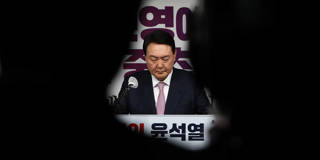What Is South Korea’s President-Elect Facing?
South Korea's outgoing president, Moon Jae-in, failed to rein in soaring housing prices, which may have cost his party the presidency. If President-elect Yoon Seok-youl takes the wrong approach to that and other key issues, the country may be unable to avoid Japanese-style “lost decades.”

SEOUL – Last month, South Korean voters elected Yoon Seok-youl as their next president. It was a hotly contested race, which Yoon won by a razor-thin margin of just 0.7%. What will the conservative People Power Party candidate’s victory mean for South Korea and East Asia?